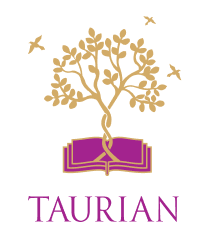Ramadan & The Joy of Sharing
O you who have believed, decreed upon you is fasting as it was decreed upon those before you that you may become righteous
-Quran 2:183
Ramadan, the ninth month of the Islamic calendar, is deemed auspicious and one of the holiest months. During this month, Muslims worldwide observe Saum (a fast that requires no eating and drinking from pre-dawn until sunset). The moon that marks the beginning and end of this sacred month languidly inflates and then quietly retreats, mirroring the spiritual expansion and contraction we experience in the lives of our faith.
It is believed that the Holy Quran descended on a preserved tablet in the heaven on a night among the last ten nights of this month. From there the arch angel Gabriel would bring down the revelations to Prophet Muhammad (may peace be upon him) time to time over a period of 23 years. And so, this month is considered to be sacred.
Ramadan teaches self-discipline and self-control. During fasting, a believer is expected not to indulge in vain and licentious talk. This renders a person a duration of one month to learn self-restraint. For an example a smoker can quit smoking, a person who is used to of using cuss words, he may unlearn and become disciplined. So, the crux is that it can help one to overcome evil. It also aims to nurture empathy towards the less privileged who live a life of an indigent and get meagre food to survive on. In this regard a believer is obligated to distribute his 2.5% of his yearly saving on poor as Zakat (a tax to purify one’s wealth).
As one of the five pillars, fasting during the month of Ramadan is mandatory for all healthy adult Muslims. Children who have not reached puberty, the elderly, those who are physically or mentally incapable of fasting, pregnant, breast-feeding mothers and travellers are exempted from this obligation.
There’s another charity that is obligatory called zakat al-Fitr, that means approx. three kg of cereals per member of the family has to distributed before Eid prayer. This is to encourage even the poor to have feast for themselves. It’s considered as an expiation against loose and obscene talk during fasting.
On the occasion of Eid ul-Fitr (the feast of breaking or end of fasting), worshippers across the world offer prayer in the morning in large congregations. Apart from praying people exchange gifts, visit relatives, friends, neigbours, relish traditional delicacies and wish each other ‘Eid Mubarak.’ For a lot of my friends Eid is all about the sweet Sewai, the tangy dishes and the amazingly relishing Biryani. India is a cultural melting pot and here we all invite our friends and families to join in the celebrations. The rainbow nature of the country is exemplified by glancing at these celebrations.
Being restricted in our houses due to COVID has changed how we have celebrated Eid the past year and how we are preparing for the upcoming event. Instead of going for congregations we will pray in our houses and reach out to our relatives and friends via digital platforms to help stop the pandemic. Looking at the hardships faced by the fellow countrymen I have changed how I will celebrate Eid. Since last year I have pledged to spend my Eid supporting ‘The Thalia Initiative’. It is an outreach program which allows me to reach out to those who need our help the most. Keeping up with the spirit of Ramadan and Eid we went around ensuring that no household remains hungry and no child without hope. I hope that we all celebrate this Eid by helping those around us who are hapless and deserve our sympathetic gesture of brotherhood.
Mohammad Hamza Israil
Grade X

